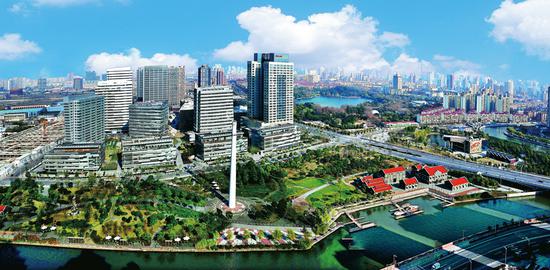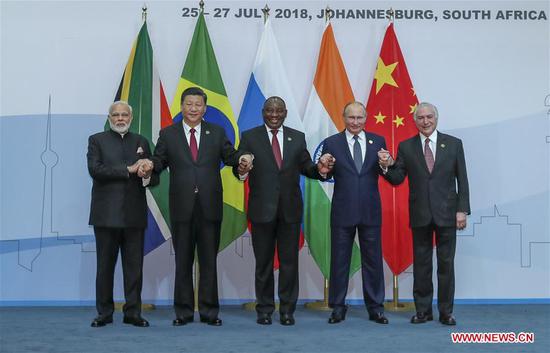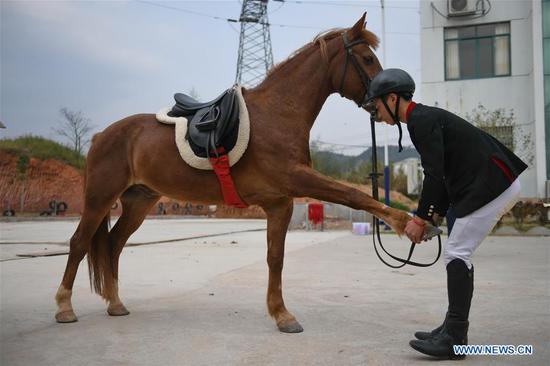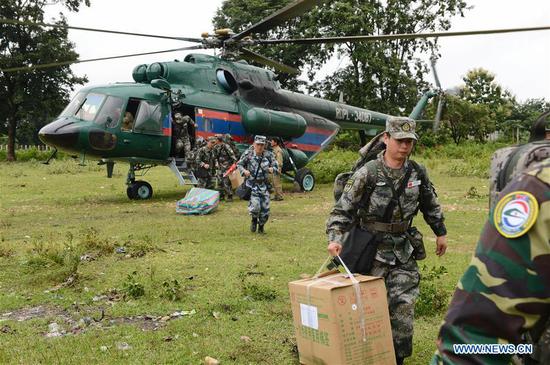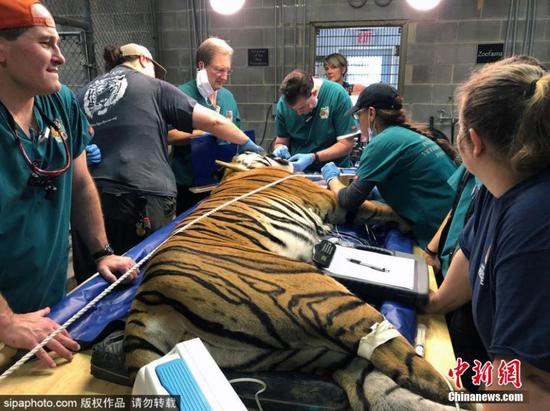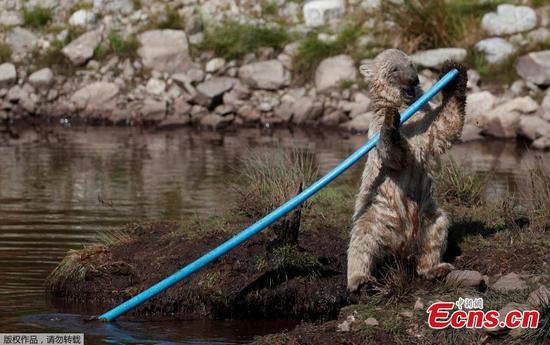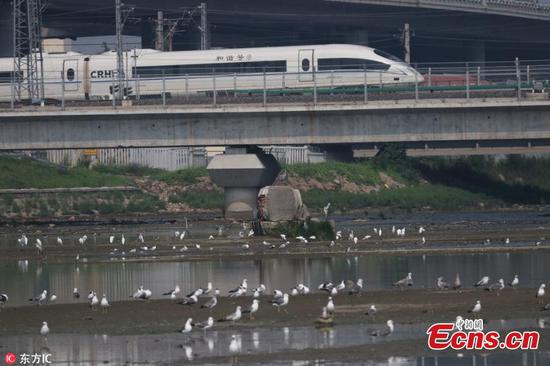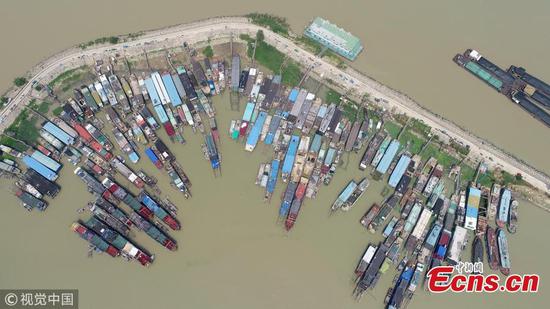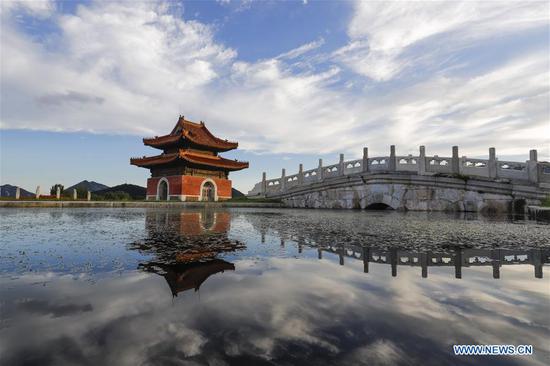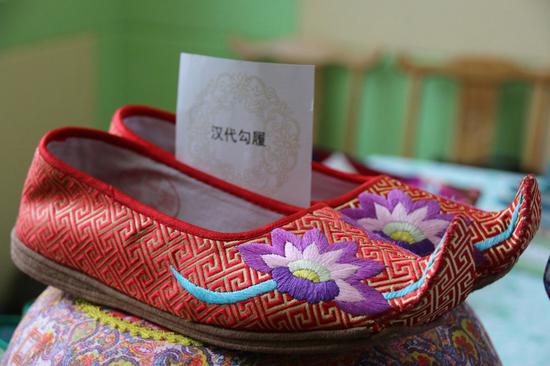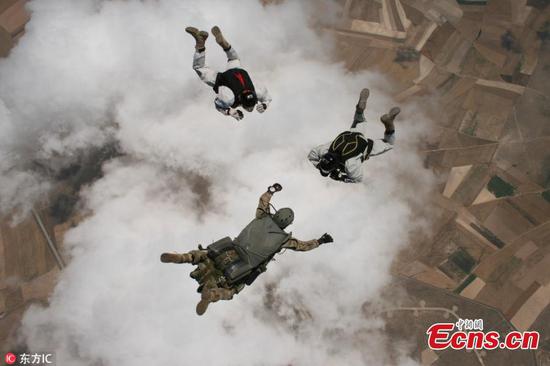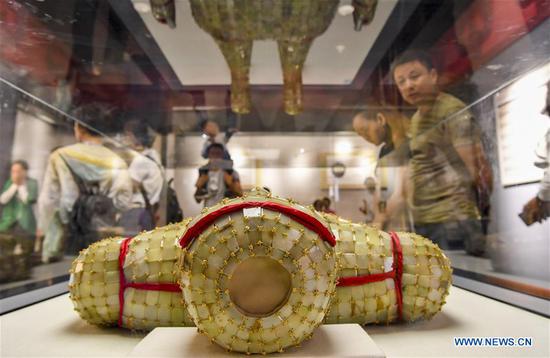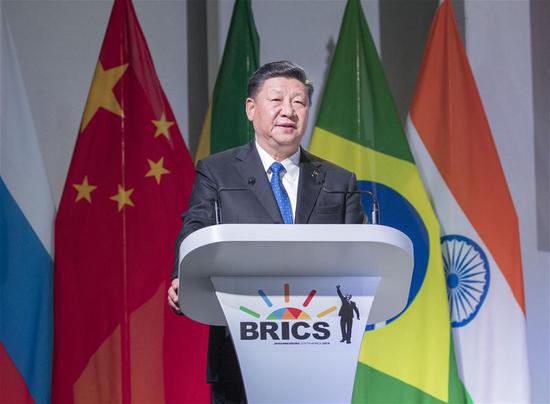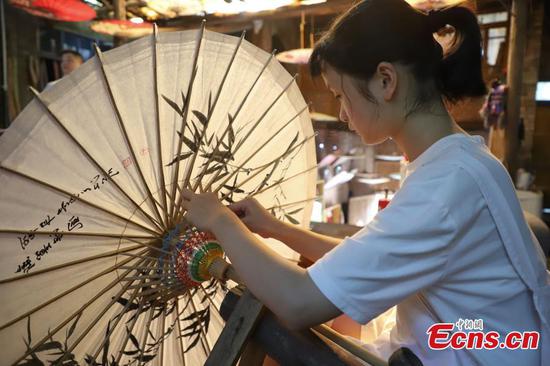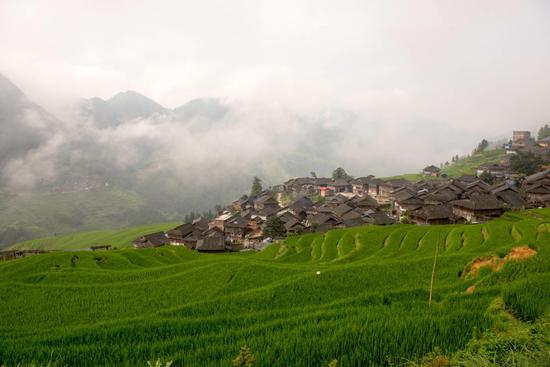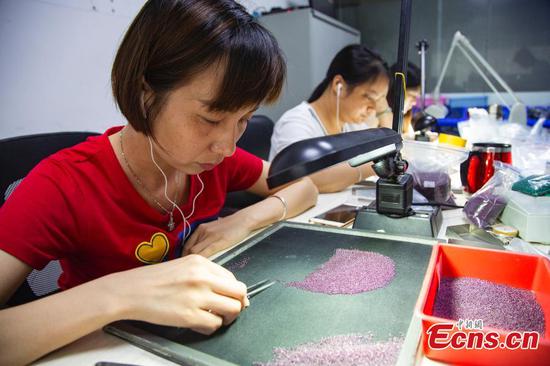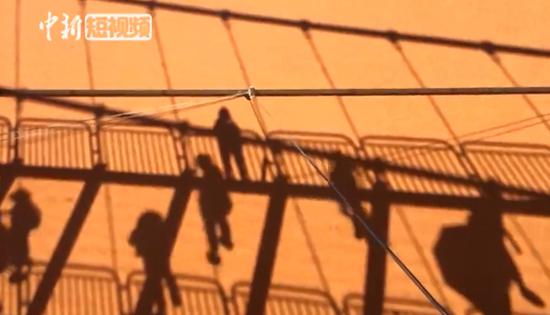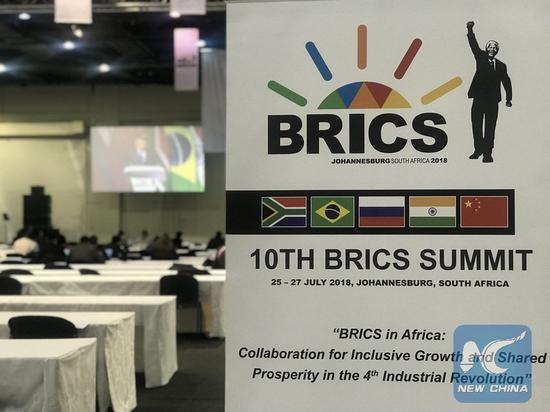
Photo shows a scene at the ongoing 10th BRICS Summit held on July 25-27 in Johannesburg, South Africa. (Xinhua)
BRICS?nations including Brazil, Russia, India, China and South Africa, have vowed to safeguard the multilateral trading system at a time when?U.S. trade unilateralism and isolationist route cause much concern for the global community.
South African President Cyril?Ramaphosa, in his remarks made at the?BRICS?Business Forum held under the?10th?BRICS?Summit which is taking place on July?25-27, said that the forum is held when the multilateral trading system is facing unprecedented challenges.
"We are concerned by the rise in unilateral measures that are incompatible with World Trade Organization rules and are worried about the impact of these measures, especially on developing countries," he said.
To counter these developments, the president has encouraged?BRICS?countries to further enhance trade ties, especially in the productive sectors, because the?BRICS?countries are increasingly recognized as an influential formation in reinforcing the principles of transparency, inclusiveness and compatibility within the multilateral trading system.
"There is also much scope to expand the value of trade between?BRICS?countries. As a country that is primarily an exporter of commodities to itsBRICSpartners, South Africa supports a shift towards complementary andvalue-addedtrade," he said.
Rob Davies, South African Minister of Trade and Industry, said at the business forum that the challenges in the global trading environment require business leaders from the?BRICS?nations to further deepen cooperation as a defense against trends against?multilateralism?which are undermining the multilateral?rules-based?trading system.
He said that currently, the?intra-BRICS?investment remains a relatively small part, about six percent, of total?BRICS?investment, which means?BRICS?nations need to strengthen investment relations among themselves with other initiatives of?BRICS, including the New Development Bank.
He urged the member nations to work together so that they move up the value chains, become producer of more complex products, and utilize investment to lead trade for mutual benefits.
Maxim?Oreshkin, Russia's Minster of Economic Development, said that since 2009, the?BRICS?has grown bigger in terms of GDP and the economic structure has changed.
"The?BRICS?economies become more open to the world. We are open more to each other," he said.
He urged that?BRICS?countries to work on three spheres so as to counter the negative implications of the current trade tension, including working to decrease trade barriers, increasing financial opportunities among?BRICS?countries and advancing technological development through innovation.
"It is also important that?BRICS?has these discussions in Africa, which has huge investment and economic potentials," he said.
On the?BRICS?role in Africa, Davies added that?BRICS?countries will be all involved in the continent in one way or another, and there is possibility to enhance their role in the continent if they find the?complementarities?that will enable them to work together more effectively.
The theme for the?10th?BRICS?Summit is: "BRICS?in Africa: Collaboration for Inclusive Growth and Shared Prosperity in the?4th?Industrial Revolution". South Africa assumes the rotational?chairship?of?BRICS?this year.










